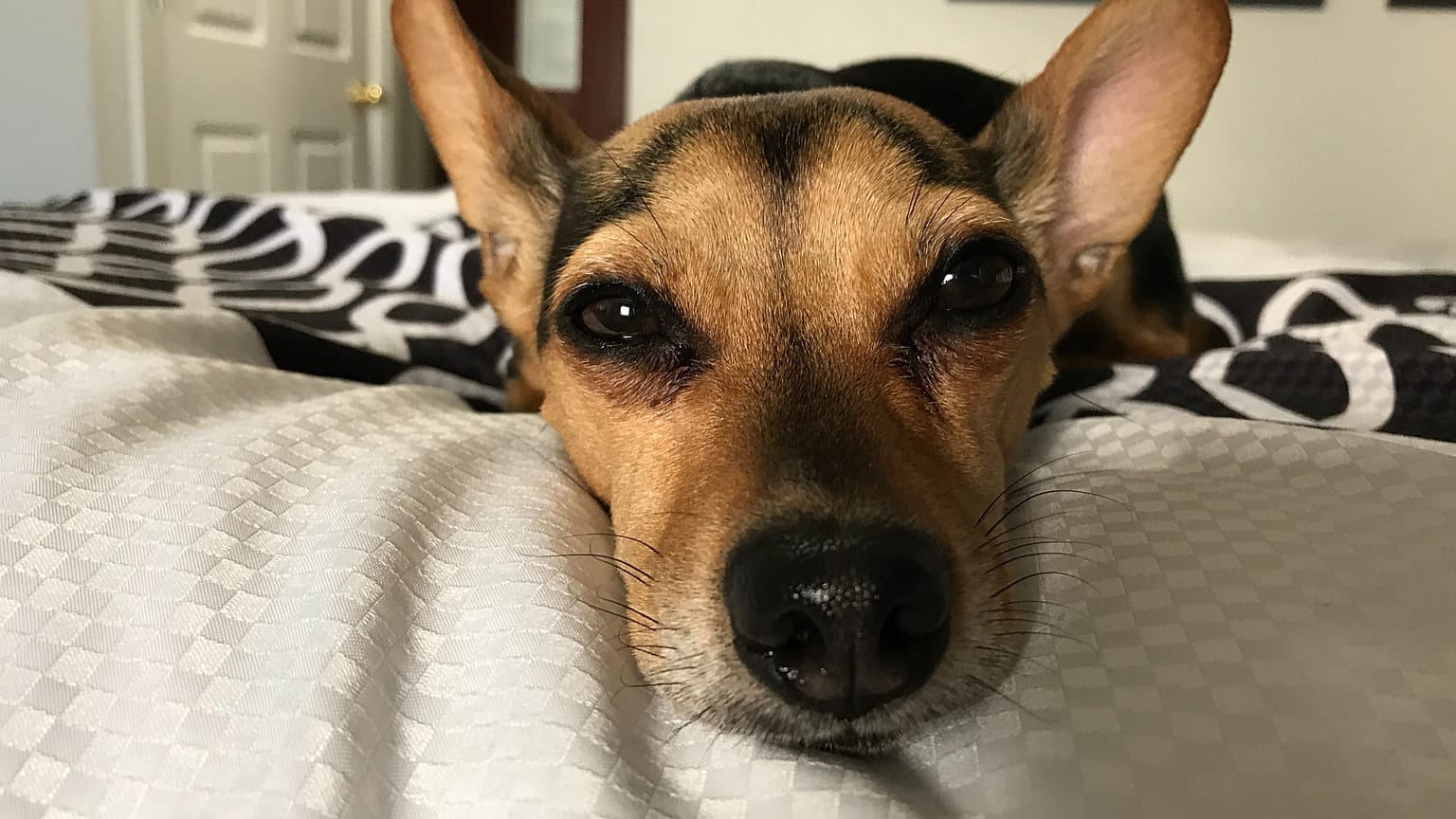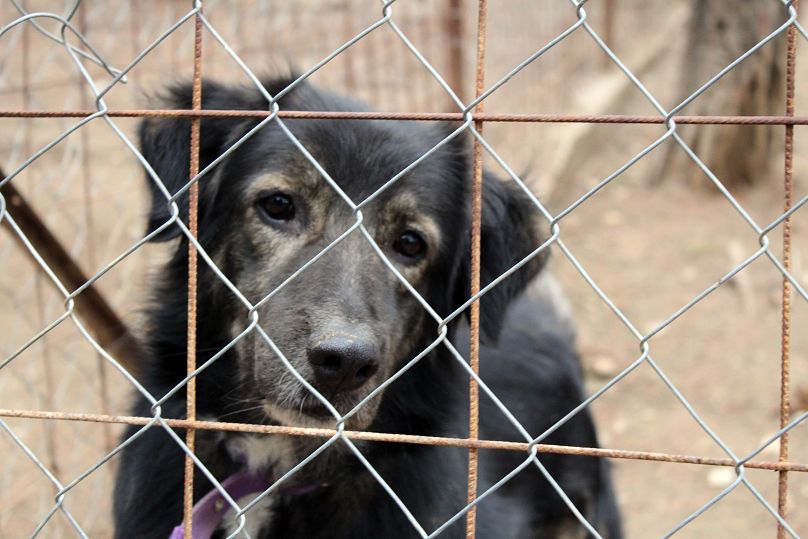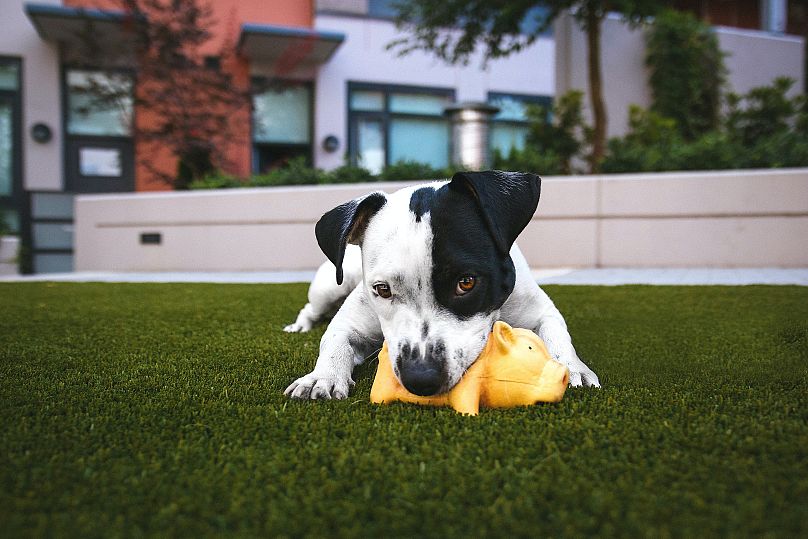Turns out our furry friends have a surprisingly high ecological impact.
Pets may bring joy to our lives, but recent research suggests our furry friends have a surprisingly high ecological impact. Thankfully, a few simple, sustainable tips can help anyone be a more eco-friendly pet owner.
 ADVERTISEMENT
ADVERTISEMENT
 ADVERTISEMENT
ADVERTISEMENT
1. Adopt don't shop
If you're a prospective pet parent, consider adopting a rescue animal instead of turning to a breeder. Adopting rather than buying pedigree or bred dogs helps reduce the environmental demands of overpopulation.
Every city in every country has animal rescue centres where you can find the perfect pet for you. By adopting an animal, you are helping lower demands on breeders. The EU estimates that there are over 100 million abandoned or stray animals living in Europe. Instead of bringing another dog or cat into the world, it's worth looking at the millions already in need of a home.
For some breeds of cats and dogs especially, overbreeding and inbreeding has become a serious issue. As Simon Usborne writes in the Guardian, demand for particular 'Instagrammable' breeds of dog like French Bulldogs and Pugs has lead to a surge in health problems. The majority of rescues and strays are crossbreeds, which are usually far healthier.
2. Think about what your pets are eating
‘Human grade’ pet food (offering cuts of red meat or fish preferred by Western diets) is on the rise across Europe, but recent research suggests pet food is already responsible for around a quarter of the environmental impacts of meat production in terms of the use of land, water, fossil fuels, phosphates and pesticides.
While dogs and cats do need protein - and cats, which are obligate carnivores, do need meat – eco-conscious pet owners may want to consider pet foods made from meat byproducts, offal, chicken or rabbit. This will avoids using products containing red meat and fish which, by comparison, have a much higher environmental impact.
It's also worth considering the miles your pet's food has to travel. There are plenty of local, independent pet food companies who will often deliver direct to your door. Pure Pet Food produces dehydrated dog food in fully recyclable packaging and delivers a monthly supply at a time.
Dehydrated pet food is one way to ensure that your pets are eating well, while also minimising their carbon pawprints. Fresh food contains 75 per cent moisture, meaning tons of water is shipped around when moving pet food from manufacturer to distributor to customer. By dehydrating the food, the products take up far less space, requiring less packaging and thereby generating far fewer emissions.
3. Pick up after your pets with biodegradable bags
Cleaning up your pet’s waste may be unpleasant, but it’s vital for a healthy ecosystem. Pet faeces can carry disease, pollute waterways and coastal zones through runoff, resulting in an adverse impact on wildlife. Whether it’s in your own backyard or when you’re out on a walk, be sure to pick up after your pet – even if their waste is away from areas where people might walk.
Plus, when it comes to picking up poop, opt for biodegradable bags - rather than using single-use plastics. There are plenty of compostable bags available, made from natural rather than synthetic fibres, which take around three to six months to decompose fully.
4. Change your cat litter
Cat litter has a significant environmental impact, with the silica clay commonly used in supermarket brands deriving from environmentally-destructive strip mining. This is when mining companies bulldoze the surface until they find the desired mineral – a destructive process that can destroy local environment, displace wildlife due to habitat loss and contaminate water tables.
This type of litter has also been linked to health problems in cats who breathe in, or ingest, the chemical-laden dust.
Thankfully, eco-friendly alternatives, like Natusan, are readily available for green pet owners including litters made from wood shavings, recycled newspaper, and even fibrous material from wheat, maize and tree-nut crops.
5. Go chemical free
While keeping pets clean, smelling nice and free of ticksis a priority for all pet owners, many shampoos, conditioners and repellents contain chemicals and nerve agents which poison animals. The environmental runoff and chemical pollution can also affect rivers and oceans.
Try eco-friendly alternatives including flea combs and citrus extracts such as D-limonene and linalool for fleas and ticks, or any of the organically-made shampoos and sprays on the market. Those keener on the DIY approach can even consider making their own wash brew from non-toxic ingredients such as castile soap, vinegar or olive oil.
6. Keep electronics and new plastic toys to a minimum
The fast-growing pet toy market has led to a rise of electronic toys for dogs and cats, including devices that are plugged in all day to run. While it might be tempting to get your pet the finest new gadgets, digital toys don’t guarantee amusement for your pet – and can come at an environmental cost. Fom the plastic required to manufacture them, to the electricity demand that is powered by fossil fuels, the impact is substantial.
Eco-friendly owners should consider sticking to ‘old fashioned’ analog toys like balls, string or chews to keep wasteful power usage to a minimum. Many companies also offer toys, beds and other supplies that are made of reclaimed or sustainable products. And rather than buying anew, check charity shops to see what pet supplies people have donated.
Your pet won’t mind a gently-used toy, and the planet will benefit.
7. Invest in independent businesses
Instead of buying your pet's treats, collars, or tags from major companies where they are often mass-produced abroad and need replacing quickly, consider supporting some local or independent businesses.
Ruff and Tumble Dog Coats make dog towels and coats from their base in the British countryside. The brand started after its founder, Alison Priestley, couldn't find a drying coat for her dogs made of natural fibres. Director Ed Hoare explains, "everything we manufacture is built to last and with a high quality natural cotton. Our latest reusable packaging bags are just one step on our journey to be eco-friendly."
Pet tags are another seemingly small investment - it's perfectly possible to pick up several for no more than €1-2 at a time. But these cheap tags are usually mass-produced and shipped across the world in huge quantities. Instead, supporting independent craftsmen and women to produce things like dog tags can be a great way to ensure you are investing in a long-lasting product, as well as helping a small business.
Lady and the Hound Studio produce handmade tags for cats and dogs.
Founder of Lady and the Hound Sara Mills also ensures her production chain is sustainable and ethical, by using small local suppliers throughout the process.
"Making sure our tags can last on adventures has been a journey," says Mills, "but we love seeing the end product on our customers pups!"



















